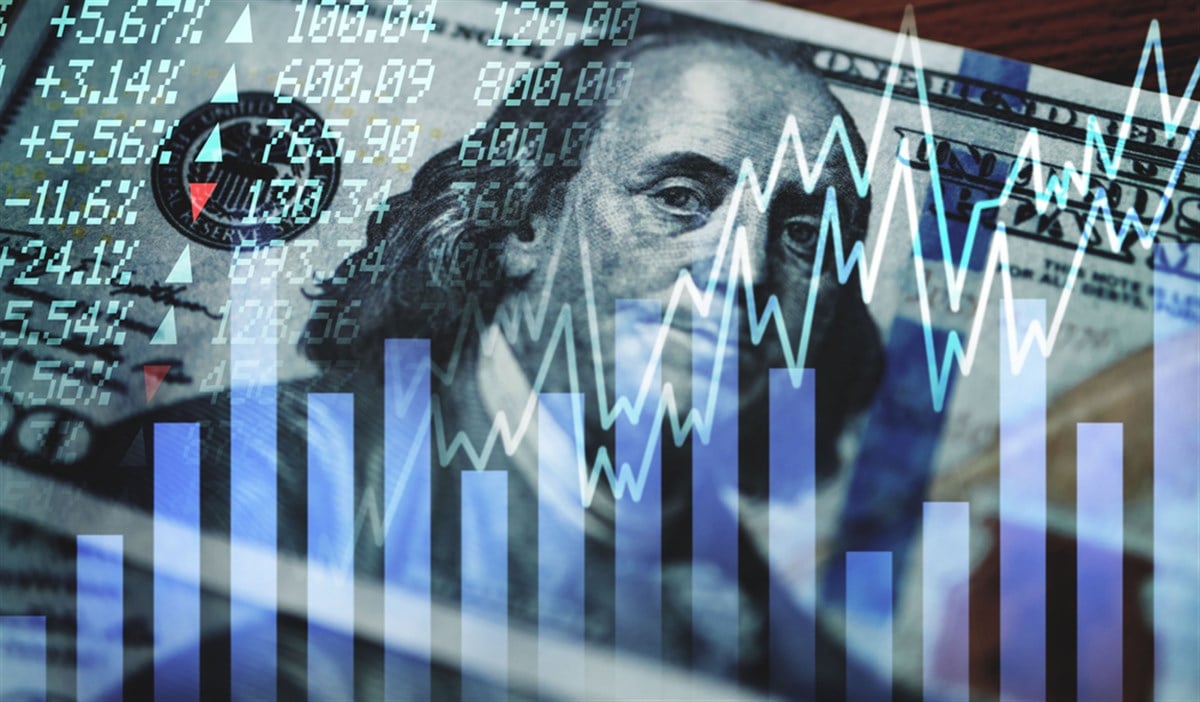
Lately, the major domestic stock indices are getting into a habit of setting fresh all-time highs.
Unwavering hopes of aggressive Federal Reserve interest rate cuts in 2024 have pushed the Dow, S&P 500 and Nasdaq-100 to record levels ahead of this week’s key economic data releases — the initial fourth quarter GDP reading and the Fed’s preferred inflation gauge, Core CPI. Mix in big earnings headliners like Netflix and Tesla, and we could be in for a roller coaster ride.
As bull market momentum rages on, many investors have turned to the consumer discretionary sector in hopes of outsized returns. The move makes sense for a couple of reasons.
First, if rates drop and inflation pressures subside as expected, American households will have increased spending power. Budgets would get an even greater boost from continued wage growth. Companies that benefit from stronger discretionary spending would in turn earn higher profits and see their stocks go up.
Second, consumer cyclicals have historically been one of the best groups to invest in. Over the last 10 years, the S&P 500 consumer discretionary sector has produced a cumulative return of 171%. That’s second only to information technology, which is up a staggering 507%. So why not just go all-in on tech?
As a whole, the tech sector is currently expensive at 44x last year’s earnings. In contrast, the consumer discretionary sector has a P/E ratio of 24x. And what technology boasts in growth metrics, it lacks in dividend payouts. Toss in tech’s high volatility and there’s a place for consumer discretionary in a diversified growth and income portfolio.
If the domestic economy does strengthen, consumer cyclicals that offer dividends may generate a nice blend of growth and income in 2024. The cash cushion they provide may also offer protection for investors weary of the market’s record highs.
So while the days of the U.S. 10-year Treasury note offering a 5% yield are long gone, several U.S. consumer discretionary stocks currently offer dividend yields of at least 5% — 26 to be exact. Here are a few large cap examples.
What is Ford’s dividend yield?
Ford Motor Company (NYSE: F) currently pays a $0.15 per share quarterly dividend. This equates to a 5.4% forward dividend yield, which is an estimate of what the investor would earn over the next 12 months. It is a cash return that is almost three-times that of the average consumer discretionary stock. Among U.S.-listed auto manufacturers, Ford’s yield is second only to Stellantis, which boasts a 6.9% forward yield.
After the market close on February 6th, Ford will announce its fourth quarter financial results. The company’s disappointing third quarter numbers and lack of guidance (related to its UAW agreement) ignited an October 2023 selloff that pushed the stock to its lowest level in almost two years — and its dividend yield above 5%. Last week, Ford announced that it added a third manufacturing crew to meet demand for the new Bronco SUVs and Ranger pickups but lowered the production outlook for its F-150 Lightning electric pickup.
Is Hasbro’s dividend sustainable?
At 5.8%, Hasbro, Inc. (NASDAQ: HAS) has the highest dividend yield in the leisure products industry. But is the $0.70 per share quarterly dividend sustainable?
Based on analysts’ earnings projections for the coming year, the toy maker has a forward payout ratio of 66%. This is the percentage of company profits that would go to shareholders as cash dividends should the dividend amount stay constant. A 66% payout ratio, while high, doesn’t necessarily mean Hasbro is in danger of having to cut its dividend. It does, however, imply that only about one-third of earnings will be retained for future growth projects.
For now, Hasbro’s dividend looks safe. And with its share price down more than 30% since September 2023, the yield is attractive. A leading position in the $30 billion toy industry should drive the long-term cash flow needed to support the dividend.
Does Wendy’s stock pay a dividend?
The Wendy’s Company (NASDAQ: WEN) food may be fast, but in order to collect the stock’s 5.3% annualized dividend, investors will need patience. Wendy’s offers the highest dividend among mid-cap restaurants — but it is one that could very well be lowered in the years ahead. That’s because the forward payout ratio is above 80%, which implies there will be limited cash flow leftovers for growth reinvestment. If profits don’t improve, Wendy’s brief three-year dividend hike streak could come to an end.
When Wendy’s reports its fourth quarter performance on February 15th, Wall Street will be looking for 5% EPS growth. Earnings growth is forecast to accelerate to 12% in 2024. This should support management’s plan to open new locations, expand overseas and invest in digital technologies. Wendy’s juicy dividend looks sustainable but hinges on the successful execution of the growth strategy.
